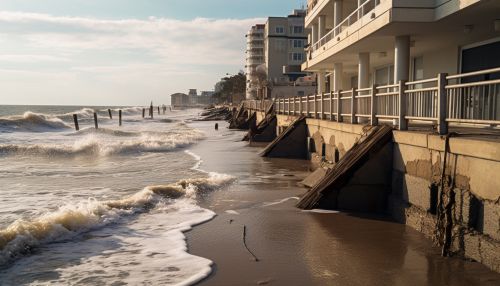Climate Change Adaptation
Introduction
Climate change adaptation refers to the adjustments in ecological, social, or economic systems in response to actual or expected climatic stimuli and their effects or impacts. It refers to changes in processes, practices, and structures to moderate potential damages or to benefit from opportunities associated with climate change.
Understanding Climate Change Adaptation
Climate change adaptation is not a new concept. However, the speed at which climate change is currently happening is unprecedented. The IPCC defines adaptation as the process of adjustment to actual or expected climate and its effects, which seeks to moderate harm or exploit beneficial opportunities. This can involve both reducing risk and leveraging opportunities.


Types of Adaptation
There are three main types of adaptation: anticipatory, autonomous, and planned. Anticipatory adaptation is action taken before impacts of climate change are observed. Autonomous adaptation is ongoing, does not constitute a conscious response to climatic stimuli and is not part of a policy decision. Planned adaptation is the result of deliberate policy decisions, often based on an awareness that conditions have changed or are about to change and that action is required to return to, maintain, or achieve a desired state.
Adaptation Strategies
Adaptation strategies can be implemented at all levels of administration and across all sectors of the economy. These strategies can be structural, such as infrastructure changes, or non-structural, such as policy changes. They can also be reactive, occurring after initial impacts, or proactive, taking place in anticipation of change.
Adaptation and Mitigation
While both adaptation and mitigation are necessary responses to climate change, they operate on different scales and timelines. Mitigation addresses the root causes of climate change by reducing greenhouse gas emissions, while adaptation seeks to lower the risks posed by the consequences of climatic changes.
Challenges in Climate Change Adaptation
Adapting to climate change poses several challenges. These include the uncertainty of climate change impacts at the local level, the long time frames involved, and the complexities of decision-making under uncertainty.
Conclusion
Climate change adaptation is a critical response to the threat of global warming. It involves making adjustments in our ecological, social, and economic systems to moderate potential damages or to benefit from opportunities associated with climate change.
